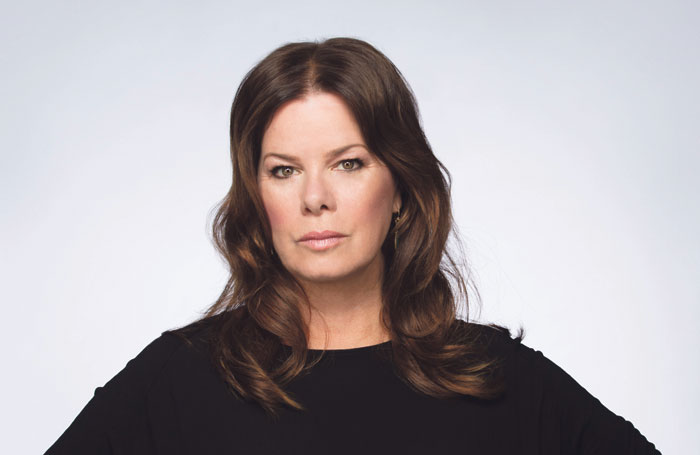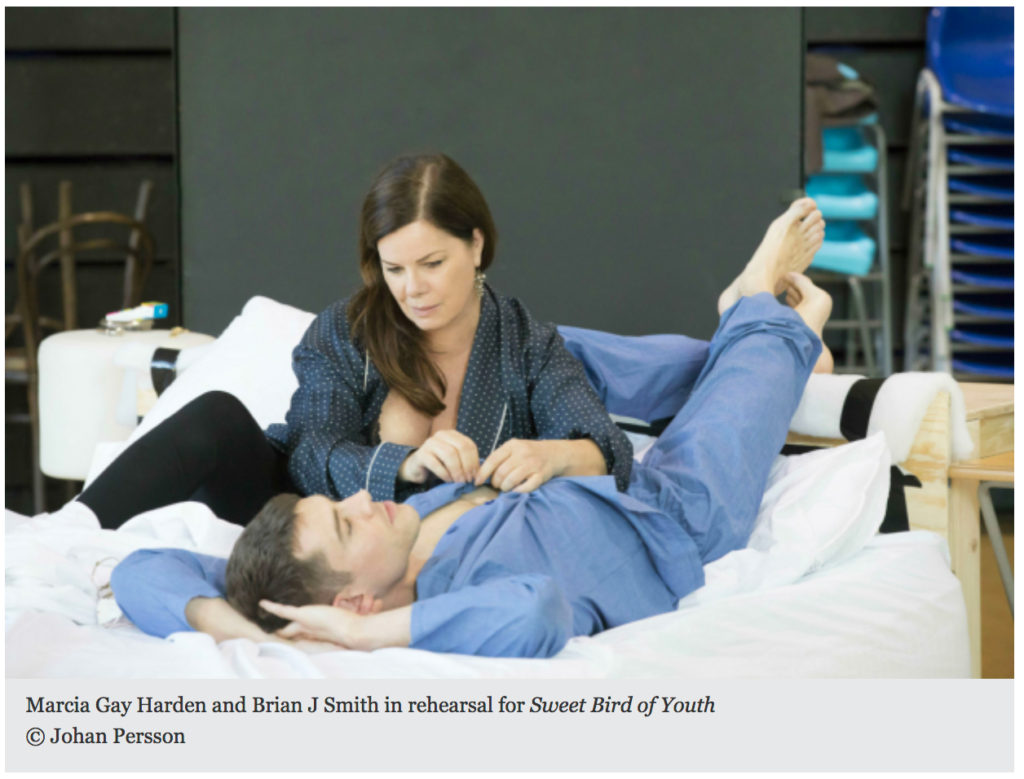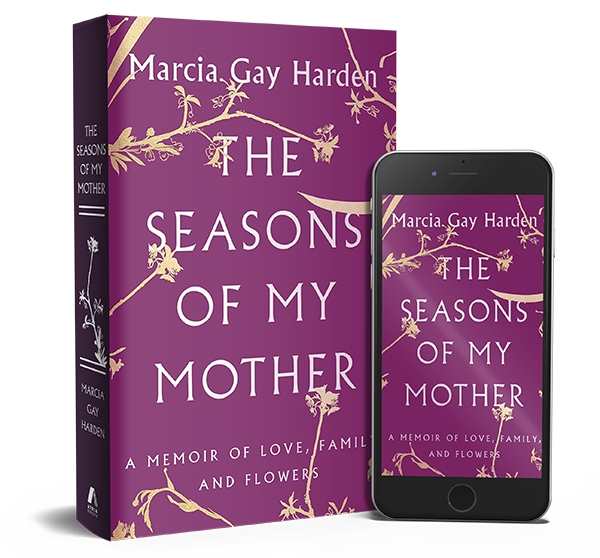![]()

American film and stage actor Marcia Gay Harden is preparing for her UK stage debut in Chichester, starring in Tennessee Williams’ Sweet Bird of Youth.
“This play feels very prescient on some level. The hypocritical, political boss, the racism below the surface of everything and the scoffing at sexuality while deeply engaged in sexual tawdriness – many of these comparisons seem to be singing a familiar American song.”
She doesn’t mention Donald Trump by name, but, like many Americans, it’s not difficult to see the source of an underlying anxiety that permeates our conversation.
“These are really insecure times. Where do you find hope?” she asks at another moment. “We have to believe in the expression of the artist. In every fascist society, the first things that go are the artists and the intellectuals.”
As an actor, she hasn’t had it easy: Harden first came to prominence when she was already in her early 30s in the Coen brothers’ film Miller’s Crossing.
“People have this illusion, or maybe it’s a delusion, that when you get your first film job you make a lot of money. Usually, they hire you because you’re cheaper than another choice but just as good. The Coens got me for a bargain – and it was not enough to pay off my school loans. I always knew about myself that I would be continually struggling on some level; that it would never be easy. I never felt like I was landed gentry.”
But, if an acting career has often been hard work for her, the hard work has also paid off: she won an Oscar in 2000 for best supporting actress for Pollock (about the life of the artist, who was played by Ed Harris) and also a Tony award for best actress in a play for the Broadway production of Yasmina Reza’s God of Carnage in 2009.
Now 57, she is also honest about the role that ageing has to play in Sweet Bird of Youth. Her character Alexandra Del Lago is a faded movie star who takes up with a younger gigolo and drifter called Chance Wayne, who is trying to use her as a means to break into the movies with.
Q&A: Marcia Gay Harden
What was your first non-theatre job?
Jobs I did included being a lifeguard at a swimming pool on a navy base and working as a waitress at Howard Johnson’s.
What was your first professional theatre job?
Playing Madame de Tourvel in a production of Les Liaisons Dangereuses in a theatre in Virginia.
What do you wish someone had told you when you were starting out?
The most important thing I’ve been told is you are enough, and it’s a lesson I still have to remember and learn every day.
Who or what was your biggest influence?
When I was younger I loved Katharine Hepburn and Bette Davis, but Meryl Streep, Susan Sarandon and Ellen Burstyn have been inspirations to me.
What’s your best advice for auditions?
Give yourself permission to be brave and always ask, not why it shouldn’t be me, but why not me?
If you hadn’t been an actor, what would you have been?
Maybe a doctor or a cultural attache.
Do you have any theatrical superstitions or rituals?
I don’t whistle on stage, I don’t cross under ladders and if I see a black cat I pause.
“The issues surrounding ageing are always around and it’s difficult to discuss it without making it seem whiny, but the play is about a lot more than a woman complaining about her wrinkles. It’s also about loss. What you do lose? What self-expression, what artistic expression and what physical expression as you face the awareness of your own mortality? She is crying to the gods – and we have to embrace that. Yes, Tennessee Williams is a little bit melodramatic. But it’s there. I’m playing this wreck of a woman, grasping to stay on the top of the beanstalk, but maybe she doesn’t look so great in this slip she’s in. She’s not 30, she’s not even 40 – she’s me – and I’m not Miss Gym 24/7. It’s quite exposing to do this.”
Rehearsing the play has exposed her in other ways. “You can feel foolish doing it, but you have to surrender to it.” When I meet her, she is only in the second week of rehearsals at Wac Arts in Belsize Park and she says (not in any way referencing the rehearsal rooms themselves): “The onion sometimes stinks as we peel the layers away.”
These are no longer the ingenue roles Harden began with: “It’s a part you grow into.” But it also isn’t coming easy, either: “We’re clawing at the turns that Tennessee makes – it’s not logical, A doesn’t lead to B to C. So we’re grappling with that and how to root it in honesty, but also accept the grandness of it.”
The play was last seen on the London stage in 2013 in a production that starred Kim Cattrall at the Old Vic. This year has also brought a production of Williams’ The Glass Menagerie to the West End from Broadway with Cherry Jones, while Sally Field appeared in another new production of that play on Broadway itself. And Sienna Miller and Jack O’Connell will star in a West End revival of Cat on a Hot Tin Roof at the Apollo Theatre in July.
Theatre is about language. There’s a hunger in the theatre for words, especially in a Twitter world of 140 characters’
When I ask Harden why she thinks there’s this sudden proliferation of Williams’ plays, she turns the question straight back to me: “Why do you think it is? You’re the expert.”
But when I push her further, she ventures this: “I’m in no way an expert, so my opinion counts for almost nothing, but theatre is really about language.” And Williams’ plays provide a poetic cascade of words. The same, she feels, is true of Tony Kushner and Reza, whose Angels in America and God of Carnage she starred in on Broadway: “There’s a hunger in the theatre for words, especially when we live in a Twitter world of 140 characters.”

She’s refreshingly blunt about the reasons why she has not worked more in theatre – “you don’t make any money” – but she is also keenly aware of its non-pecuniary rewards: “I don’t think there’s anything like it. The fact that it is live is electric, hopefully, when you’re with an audience and in a conversation with it. Also, theatre is the actor’s medium, where you can really sculpt your role and create a moment with the audience. It’s like taffy, where you can stretch it to its last degrees and create the consistency of the piece you want. With film and TV it is out of your hands and you are not as in control.”
She has, in the last few years, had to learn the hard way to take control of her own life and destiny.
In 2012, after 16 years of marriage, she parted from her husband, the father of her three children – a daughter, now aged 18, and twins, a boy and a girl, aged 13. She says today: “Marriage is not a fairytale, nothing lasts forever, but as life bandies you about, there are losses and gains.” After the separation, she took her children back to her native California, which she now calls home again.
The family keeps her grounded. Speaking of her awards, she tells me where she keeps them: “They sit on a shelf in a living room next to the kids’ sporting trophies. So they don’t make me feel bigger than I am, but an award is like a two-dollar bill in our wallet: you know you’ve got it.”
Yet she also points out the importance of not only being a mother, but retaining her own identity: “Kids are a glorious hijacking of your life. But you have to remind yourself to make time for you, or the essence of you can get lost.”

